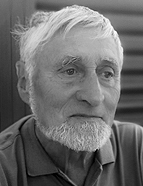

Robert Durand is a French scholar whose research has centred extensively on Portuguese history. Before delving into his academic contributions, we shall first explore his personal journey, drawing on testimonials from colleagues and friends. After retiring in 1998 as Professor of Mediaeval History at the University of Nantes, he was honoured with the book Chemins d´historien . In 1999, a tribute event was held at the Centro Cultural Calouste Gulbenkian [Calouste Gulbenkian Cultural Centre], which I had the pleasure of attending, and which resulted in the book L’espace rural au Moyen Âge . The biographical essays in these works provide key insights into Durand’s life and career.
Born to a family of farmers and with several uncles in the clergy, Durand attended school in his village, growing up without the modern amenities of electricity or running water. As was common in rural communities, he later went to a seminary for further education, following in the footsteps of his brother Henrique, who became a priest. Durand then completed two years of military service during the Algerian War, which ended for him on 13 May 1958. He subsequently enrolled at the Faculty of Arts and Humanities in Poitiers, where he was an outstanding student, as noted by his professor Bernard Chevalier. In 1963, he received his Diplôme d'Études Supérieures, followed by his Agrégation in History the next year. Following his teaching role at the Lycée Henri IV in Poitiers, Robert Durand embarked on research for his doctoral thesis. Initially supervised by Yves Renouard, he continued his work under Michel Mollat’s guidance after Renouard's death in 1965. Focused on Portuguese rural history, Durand frequently visited Portugal during his holidays, exploring the archives and libraries of Lisbon and Coimbra. Often accompanied by his family— he married in 1962 and had three children, born in 1963, 1967, and 1971— they became familiar with the Portuguese landscape. In November 1967, Robert Durand was appointed assistant professor at the Faculty of Letters in Nantes, which had been established only six years earlier. In May 1970, he defended his 3rd cycle thesis on the Cartulary of Baio Ferrado de Grijó, and in 1980, he presented his doctoral thesis titled Les campagnes portugaises Entre Douro et Tâge aux XIIe et XIIIe siècles. Alongside his academic work, he developed an interest in the local history and culture of Saint-Sébastien-sur-Loire, publishing a book about the commune and founding the Nantes-Histoire Association, which promotes regional history, particularly that of Saint-Sébastien-sur-Loire. At his university, he held prominent roles from 1990 until his retirement, including Director of the History and Sociology Training and Research Unit and Director of the History Department until 1996. Initially, his research explored the activities of the second pope of Avignon, John XXII, in the diocese of Poitou. However, his focus soon shifted to Portuguese historiography, which remains underrepresented in France. His 1971 publication of the 12th-century cartulary of the Monastery of São Salvador de Grijó, containing over 300 documents accompanied by codicological and palaeographic analysis as well as an institutional study, became a highly valuable resource for researchers of mediaeval social, economic, and religious history. This foundational work anticipated his deep interest in rural economies and peasant societies, culminating in his doctoral thesis. Les campganes portugaises offers a comprehensive view of rural life, settlement patterns, and the structures of secular and religious power in the extensive regions of Beira and Estremadura between the Douro and Tagus Rivers during the 12th and 13 th centuries.
This work is financed by national funds through FCT - Foundation for Science and Technology, I.P, in the scope of the projects UIDB/04311/2020 and UIDP/04311/2020.
